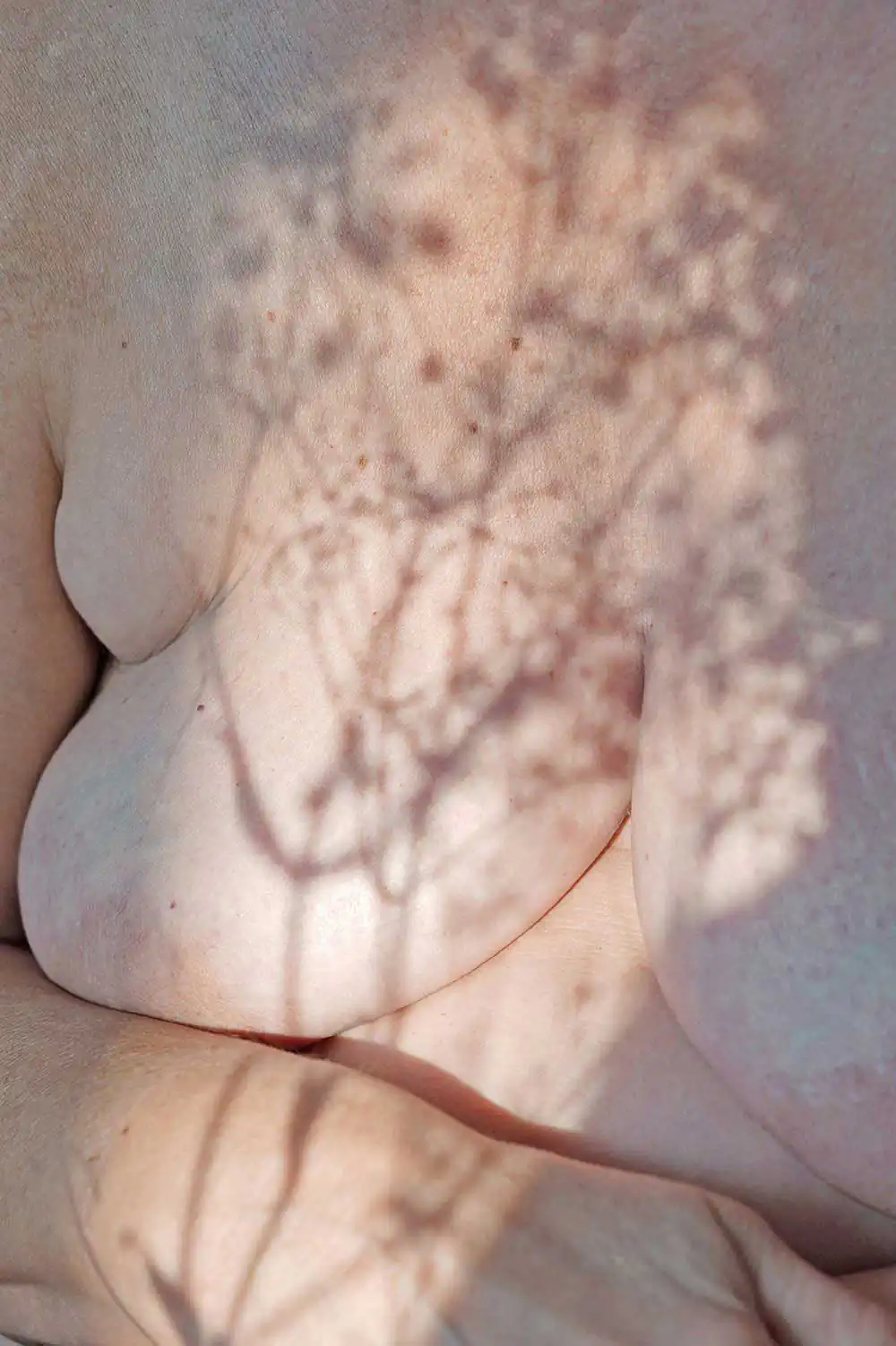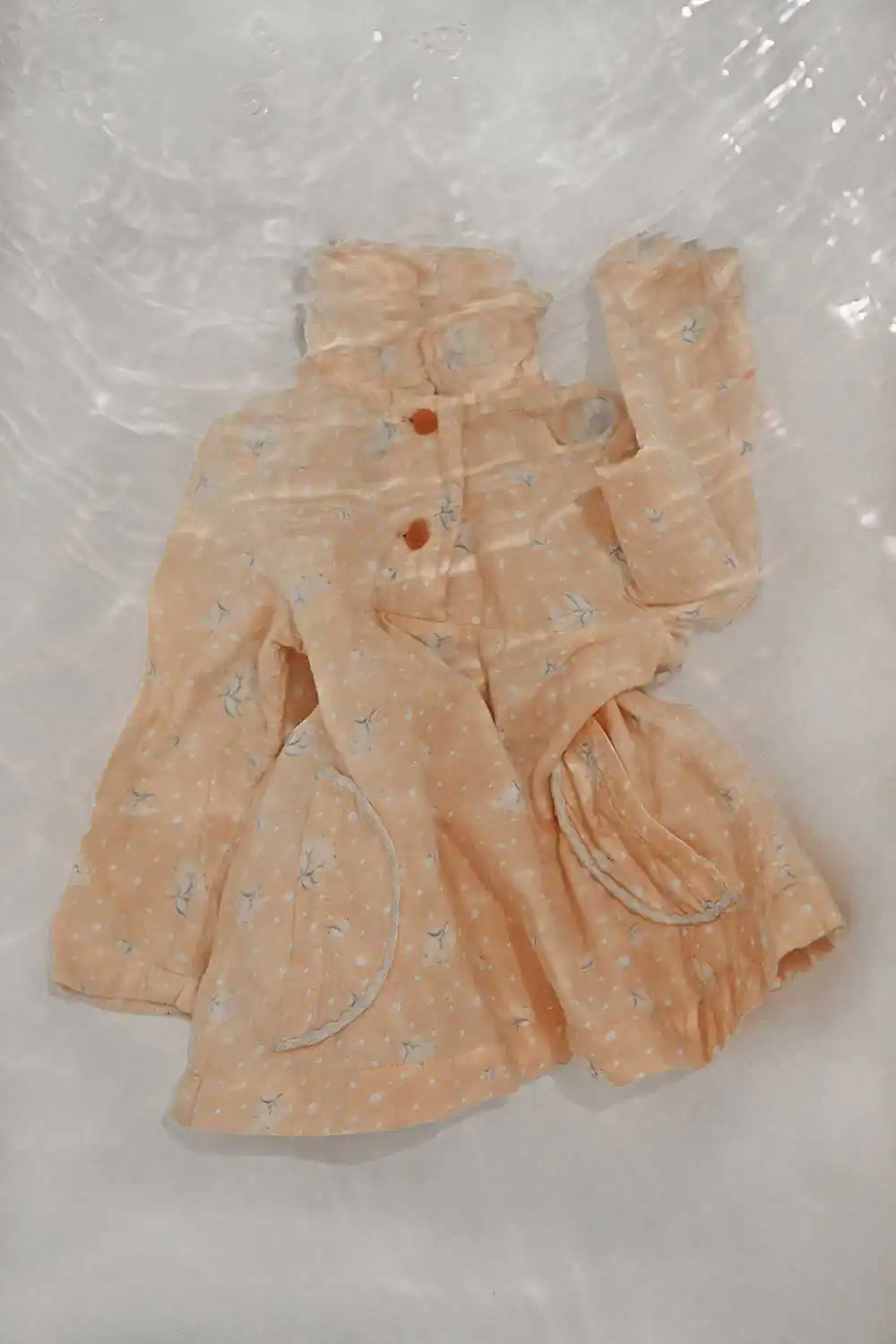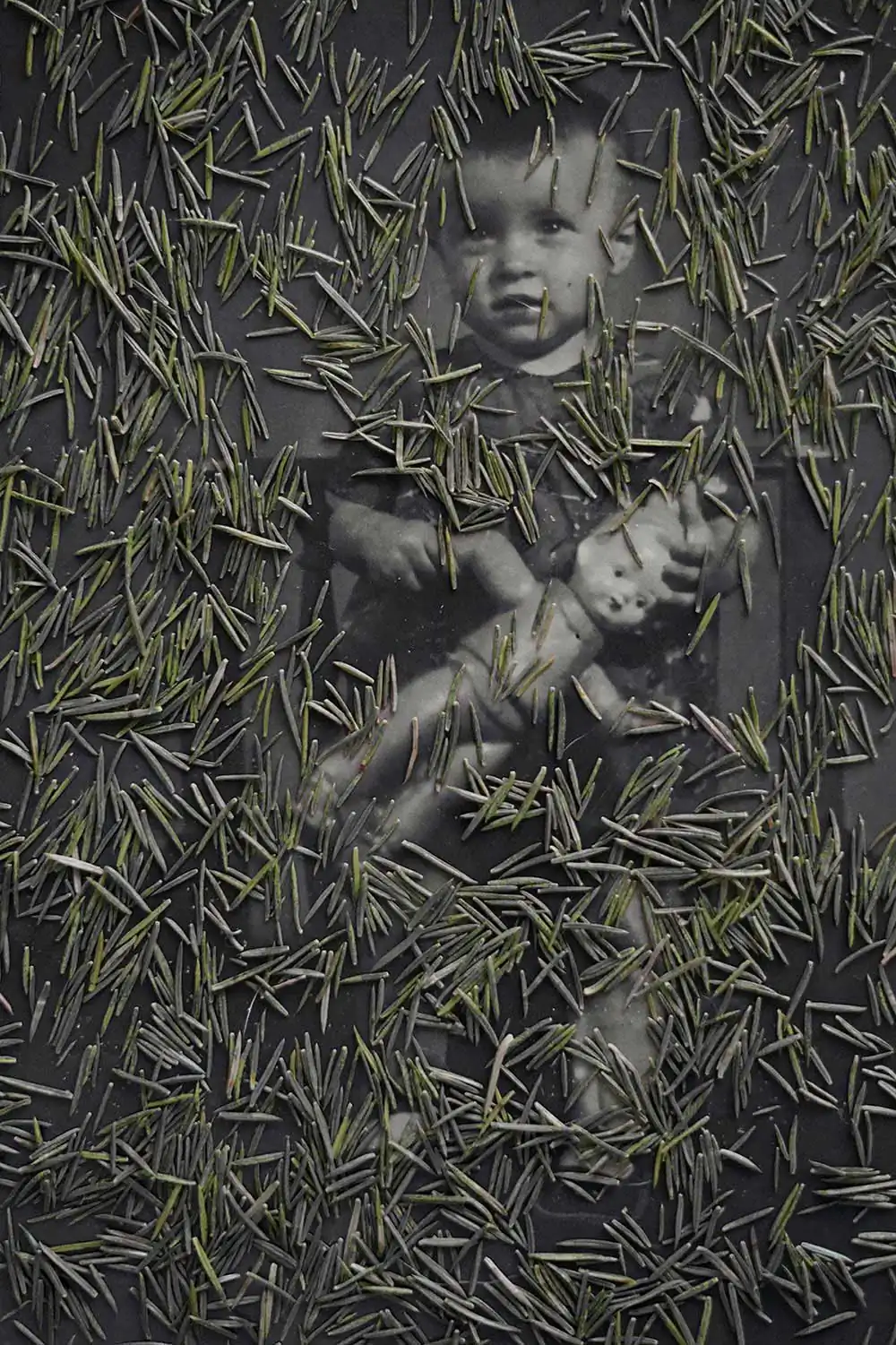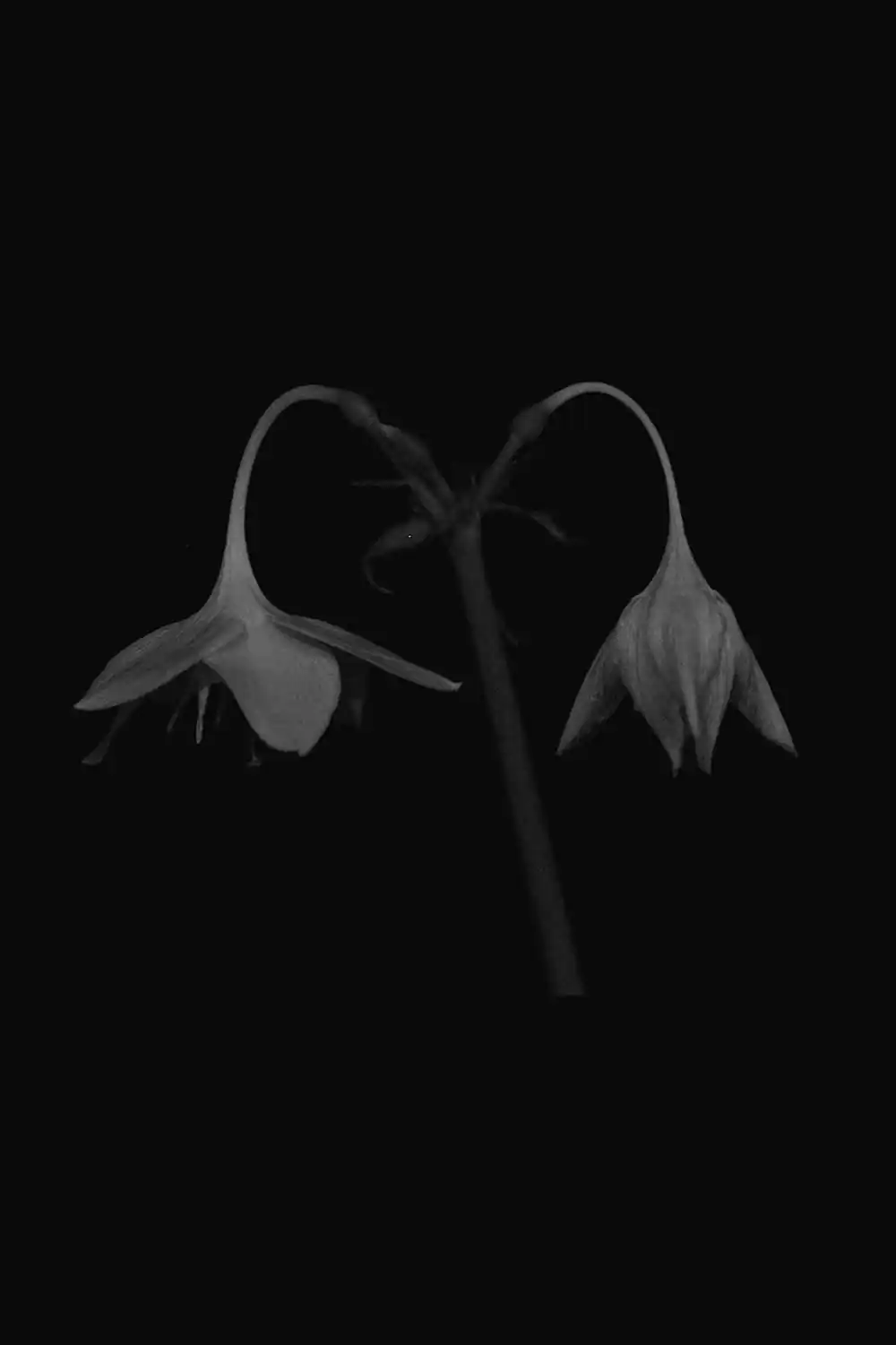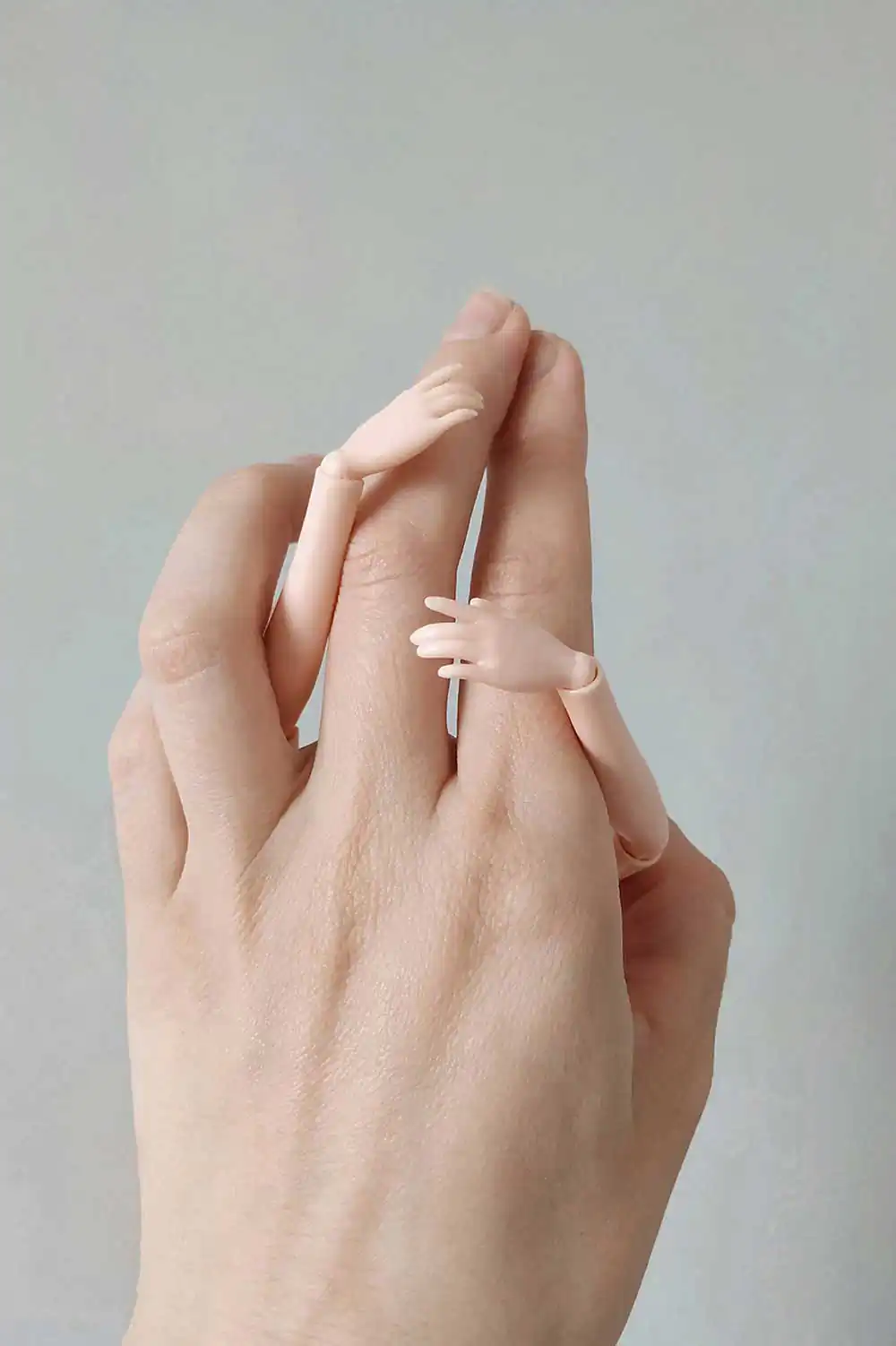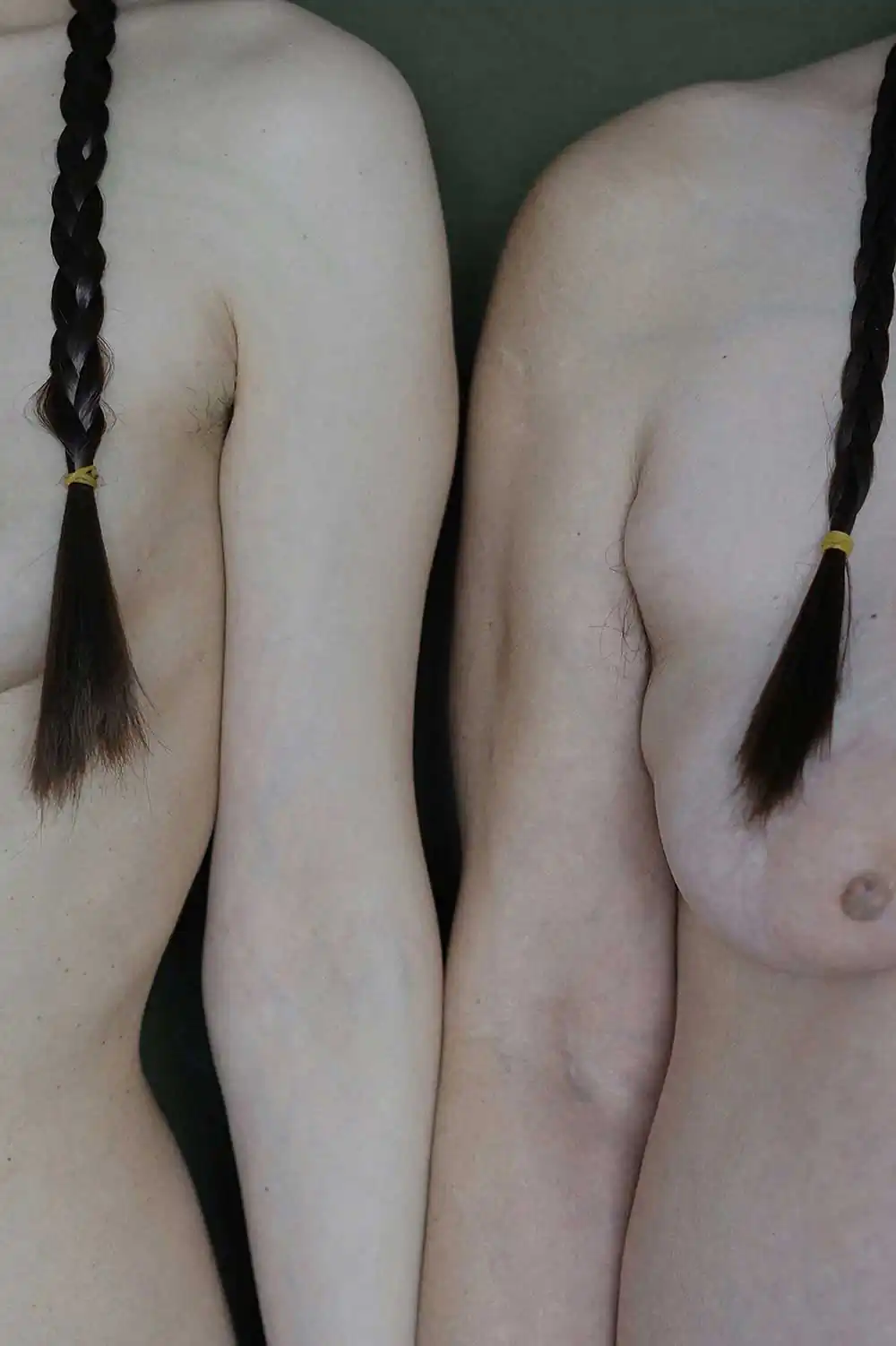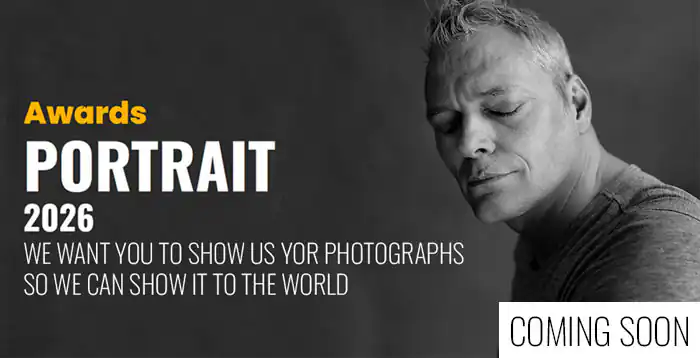My project is about closeness with mom. In my childhood, my mother almost never was near. First because of her second marriage, then because of her alcoholism. And then she completely disappeared.
My childhood passed in an attempt to hide and protect myself from the label “orphan”. The world was so terrible to me, so full of pain, that from an early age I noticed that my body was losing its sensitivity, becoming overgrown with armor. Years later, I realized that this was the only way to survive. I put on a mask and felt pain and cold, put on another and another, and so on until I no longer had contact with the world. The masks grew into me and became my face. It was only as an adult, removing one layer after another, that I was able to realize how many of them I was wearing.
For 15 years I didn’t know about my mother, but I continued to look for her, not even knowing if she was still alive. I remember her as a young woman. I often saw faces in the crowd that looked like hers, but I could only compare each one to a frozen image from my childhood.
I didn’t recognize her when we met. I saw a strange woman with my mother’s eyes.
Recognition of mother began with the recognition of her body. It was as if my childish part was searching for something in her that I still remembered. The smell, the skin, the warmth, and the heartbeat of the one who gave me life. My body began to come alive with hers, and I began to regain my senses. I began to understand the reason for my fears and pain associated with motherhood. Gradually, the acceptance of the female part of oneself, of one’s own physicality, took place through the acceptance of the mother.
Everything changed when I found out about mom’s childhood trauma. When she was twelve, she gave birth to a child, Innochka. But soon my mother lost it. By a tragic accident, the girl drowned at the age of six months. It was not a child’s grief for a child. A grief that had become forbidden, a family secret that no one should know about, that could not be mentioned.
The family is a model. Those who stumbled, who cast a shadow on the idea of it, usually do not talk about them, they try not to notice them. I didn’t want to erase my mother from my life the way other members of our family had been erased from our shared memory.
Mom didn’t forgive herself; harming herself was easier than forgiving. She hid her life in guilt, hopelessness, alcohol. Now our closeness with mom continues to grow, although the past still interferes us.
About Elena Liventseva
Elena Liventseva, born in Voronezh, Russia. Student of the Academy of Documentary and Art Photography “Fotografika” Prefers to work on long-term personal projects. Area of interest: psychological problems, trauma, social problems. [Official Website]




